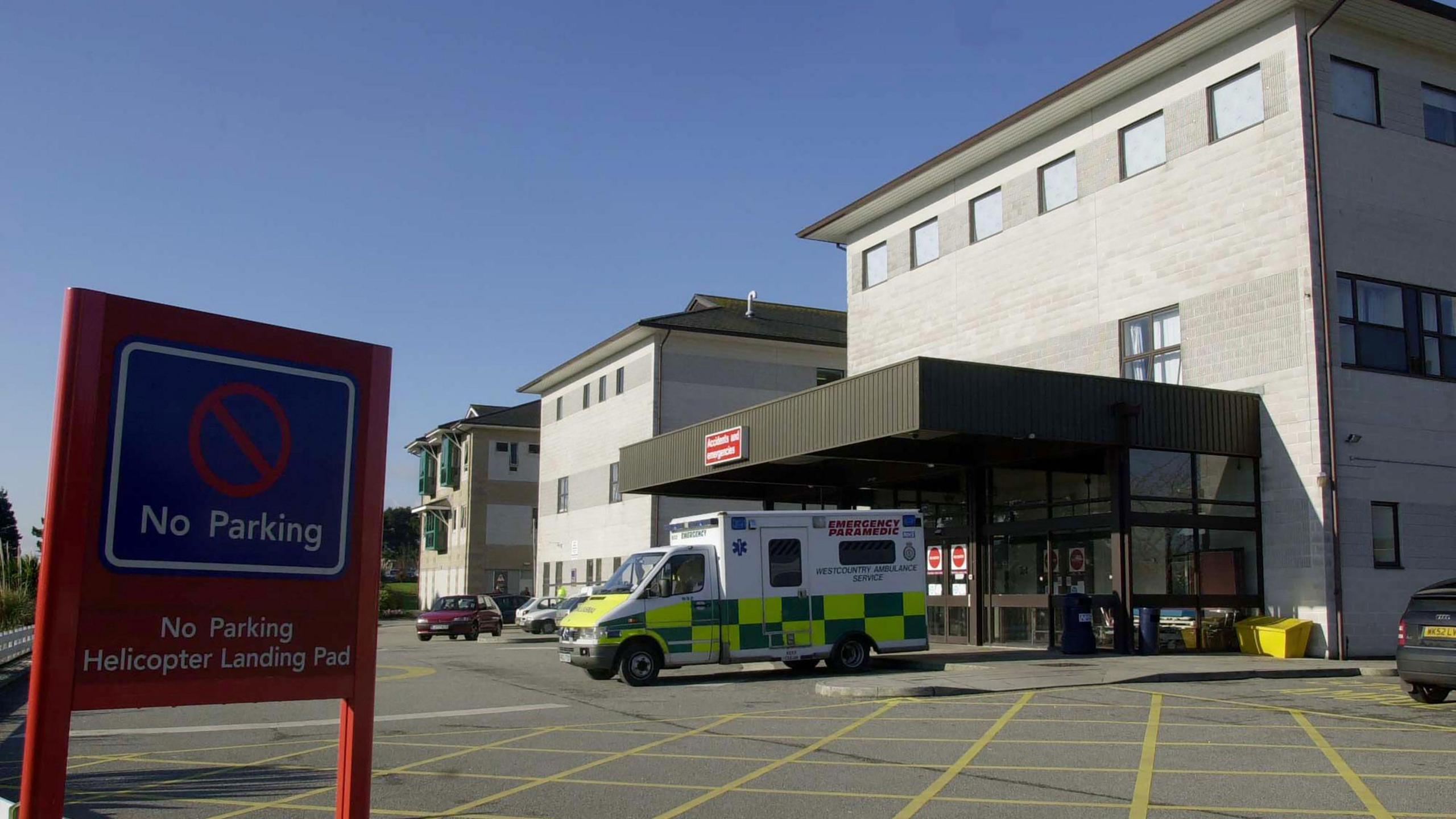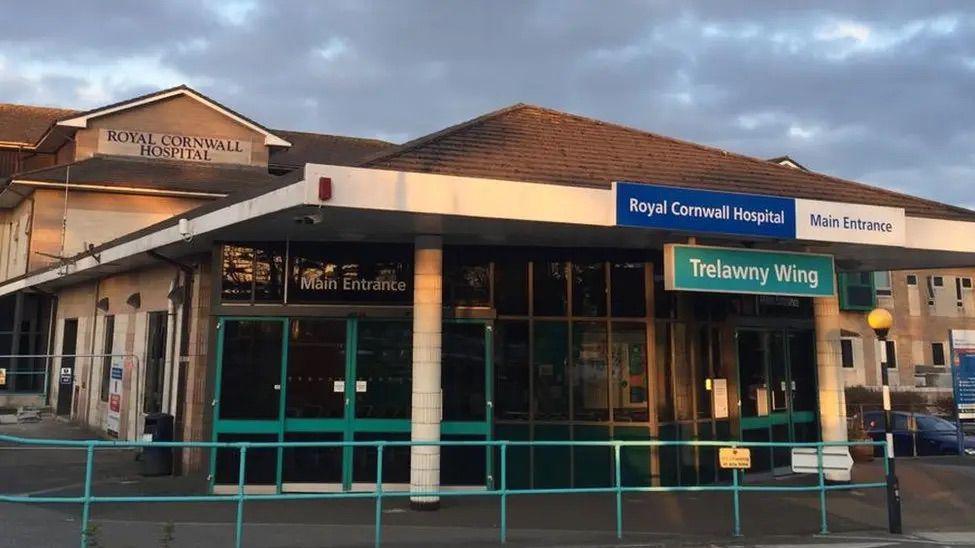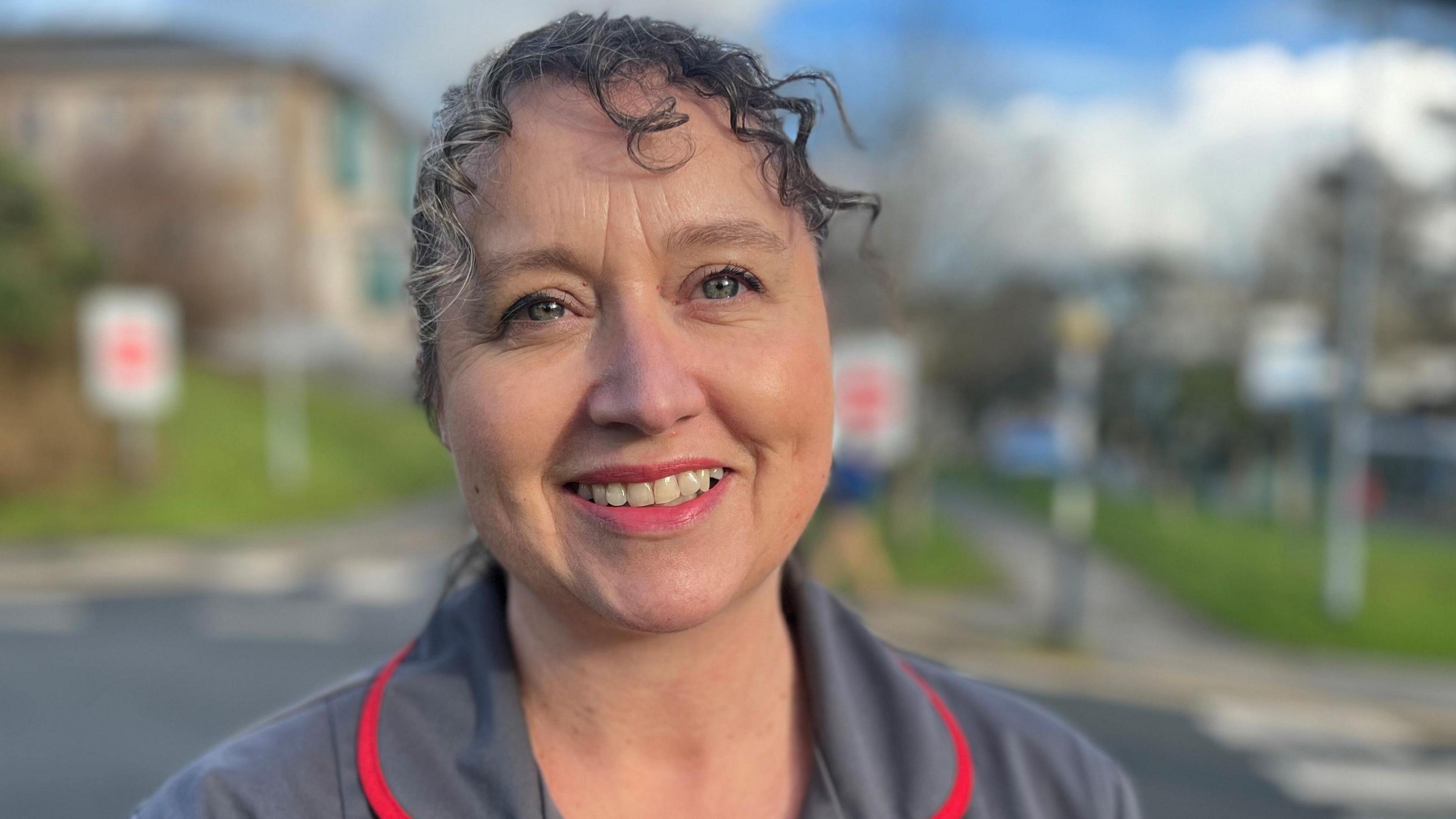Hospital told to improve and to give action plan

Ms Campbell said, despite pressures, staff were committed to treating people with compassion, dignity, and respect
- Published
Inspectors have found "ongoing challenges" that put people "at risk of unsafe treatment" at the Royal Cornwall Hospital during a recent visit.
The Care Quality Commission (CQC) rated the urgent and emergency services and medical care at the hospital as requiring improvement.
It said during the April inspection it found breaches in regulations in relation to dignity and respect, safe care and treatment, safe premises, staffing and management processes at the hospital.
The Royal Cornwall Hospitals NHS Trust said it recognised the areas "where they said we need to improve" and "we fully accept the recommendations in the report".
Catherine Campbell, CQC's deputy director of operations in Cornwall, said poor labelling and incomplete medicine records put people "at risk of unsafe treatment".
Ms Campbell said: "In both medical and emergency services, staffing shortages and reliance on temporary staff disrupted continuity of care.
"Flow and capacity pressures also had a direct impact - transfers to escalation areas, long waits for ward beds, and crowding in emergency departments meant people waited longer than necessary, sometimes in environments that didn't meet their needs or support their privacy and dignity.
"We also found risks in how staff managed medicines, including expired stock, poor labelling, and incomplete medicine records which created the potential for errors, putting people at risk of unsafe treatment.
"Leaders' oversight and risk management processes didn't always work well, with delays in investigations and incomplete reviews," she added.
Treating 'with compassion'
However, Ms Campbell said there was "positive practice" and "staff worked in strong partnership with others".
"Despite pressures, staff remained committed to treating people with compassion, dignity, and respect.
"They communicated clearly with people and their carers, involving them in decisions even in busy and challenging environments."
Ms Campbell said senior leaders were aware of issues and supported teams to prioritise safety.
The CQC breakdown is:
Well-led has dropped from "good" to "requires improvement".
Effective and caring are rated as "good".
Safe and responsive remain rated as "requires improvement".
In medical care, well-led and effective have declined from "good" to "requires improvement".
Caring is rated as "good".
Safe and responsive are rated as "requires improvement".
CQC has changed the rating for how safe and well-led urgent and emergency care from "good" to "requires improvement".
Caring has again been rated as "good".
Responsive has been rated as "requires improvement" while effective has been upgraded from "requires improvement" to "good".
Kim O'Keeffe, dual chief nursing officer for the Royal Cornwall Hospitals NHS Trust said in a statement that the CQC had "again recognised the high level of care and compassion provided by our staff but of course we recognise the areas where they said we need to improve".
She said: "We fully accept the recommendations in the report and took immediate steps to ensure the safety of ambulance handovers and use of treatment escalation spaces, as well as ensuring our teams were fully involved in the changes we have been making."
She added that there had been a "positive impact from changes our teams have been making across medicine and urgent and emergency care".
These included a commitment to maximum 45-minute ambulance handovers, with the aim to be within 15 minutes whenever possible.
"We have also opened a new medical rapid assessment and treatment unit and introduced a new way of working across our medical wards, so that we can delivery safer and more timely care for those needing emergency admission," she said.
The average ambulance handover at the Royal Cornwall Hospital in July was under 39 minutes, a "major improvement, reducing ambulance handover times by over 60% compared to April," she said.
Follow BBC Cornwall on X, external, Facebook, external and Instagram, external. Send your story ideas to spotlight@bbc.co.uk, external.
Related topics
- Published15 January

- Published11 January
